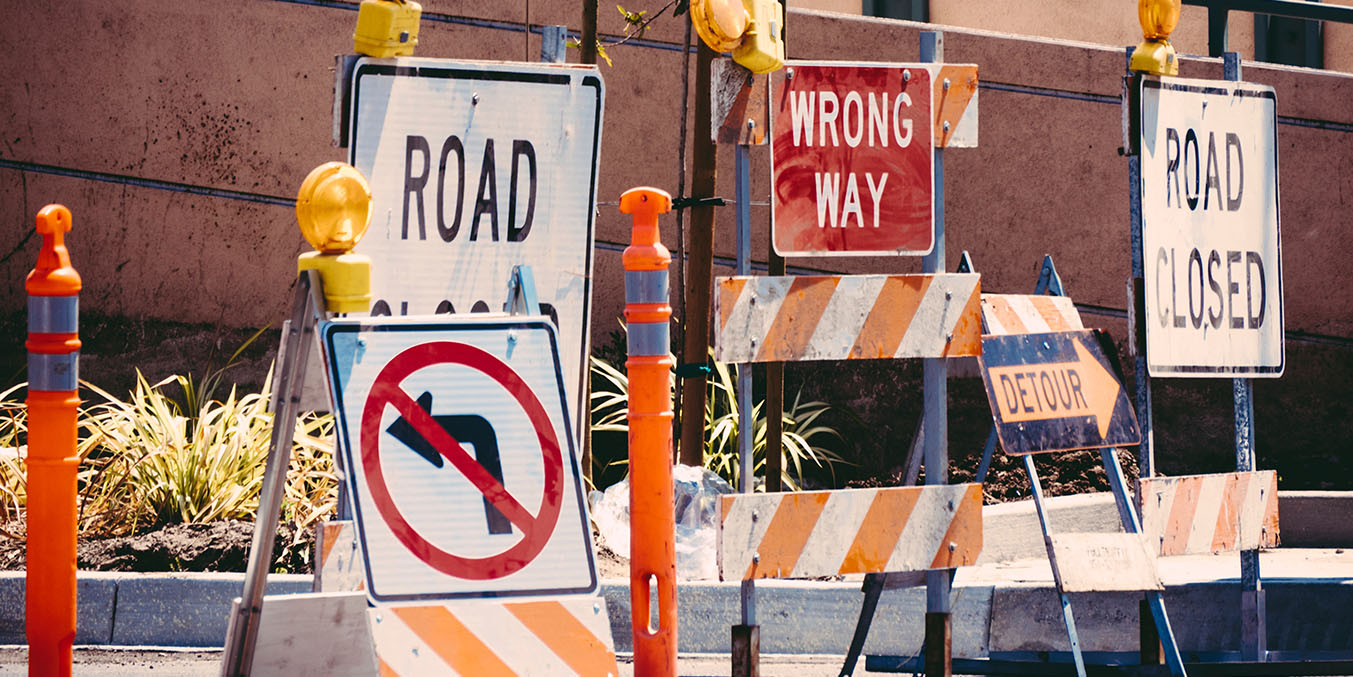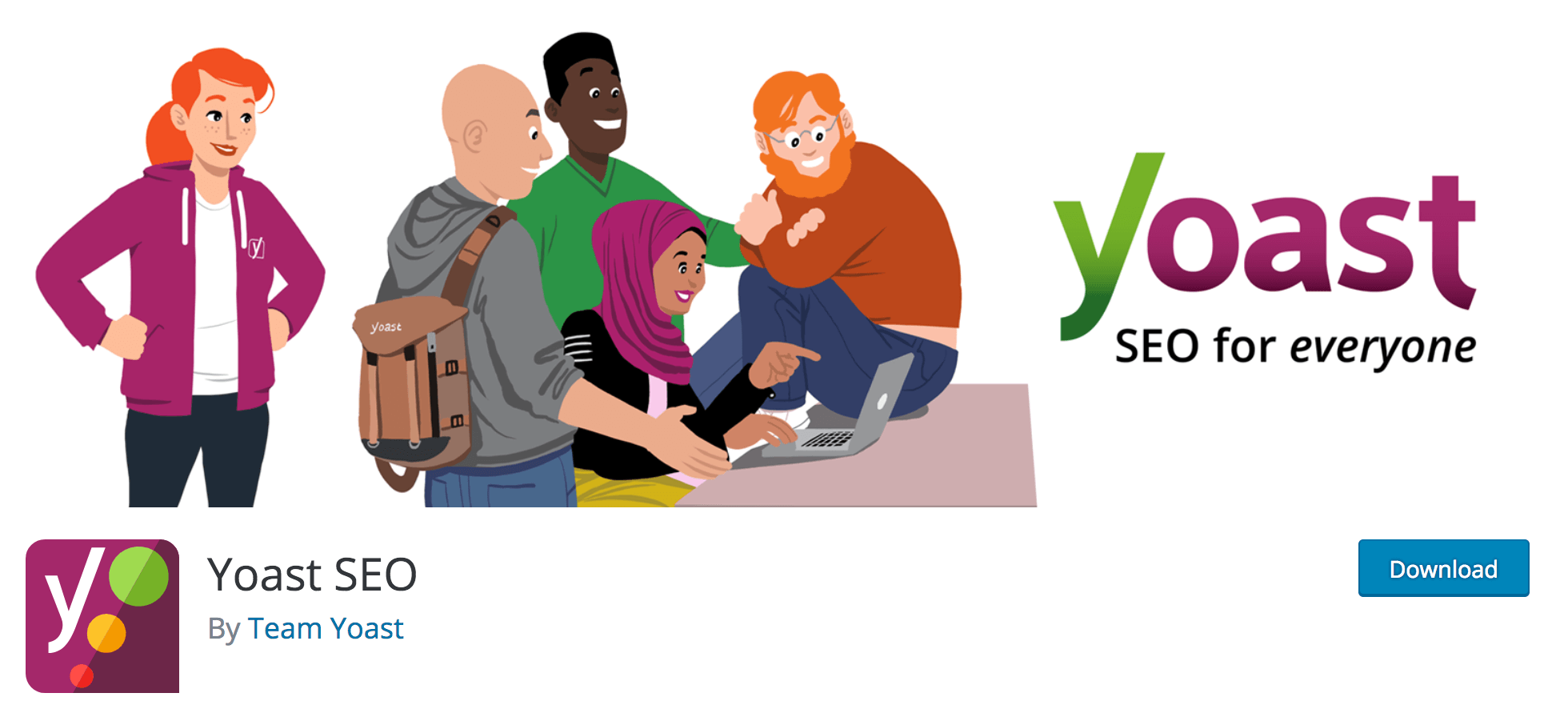
5 SEO mistakes you’ll want to avoid at all costs
Posted 04th December, 2018 by Aidan
Search Engine Optimization (SEO) is the process of improving your site’s rankings in search engines by optimizing the content. This is key for driving traffic to your website, as the top three results get the majority of clicks. However, it can be easy to make mistakes, which can actually drive down your search rankings.
Fortunately, we’ve put together a guide you can use to avoid SEO missteps, collectively referred to as “black hat” techniques. Under most circumstances, they’ll negatively affect your site – sometimes even resulting in having it removed entirely from search engines.
In this article, we’ll explain some of the most common SEO mistakes. For each mistake we discuss, we’ll also explain how you can avoid it, and how you should be boosting your SEO instead. Let’s get going.
1. Keyword stuffing
In a nutshell, keywords are search terms such as ‘Indian restaurant’ or ‘free WordPress plugins’. When it comes to SEO, the idea is to optimize your site so that it ranks highly for specific keywords. Arguably the most popular tactic to achieve this is by including keywords in your content that are searched for often.
However, overusing a keyword in an article or page in the hopes of garnering a higher ranking is known as ’keyword stuffing’. Search engines are now smart enough to notice when stuffing occurs, and will actually flag your site as spam as a consequence.
Instead, you should aim to naturally work a keyword into your content, no more than five or so times in every 1,000 words (or as a two per cent maximum of your total word count). To keep tabs on this, you can use a tool such as Yoast SEO:

This will automatically check your text and show you whether or not the keyword density is too high or low. You can then use this information to either take out a few instances of the keyword, or add some more. It’s that simple.
2. Not optimizing your content
You may have heard that regular blog posts can boost your site’s “freshness” score and improve SEO. However, this doesn’t mean you should compromise on your content’s quality just to produce fresher articles. In fact, how well your content is written is equally important, if not more so, than how often you post.
This is because search engines measure ’dwell time’ or ‘time on site’. As such, if your site contains poorly written content, readers will notice and quickly leave, which will flag your site as poor quality.
To avoid this, you’ll want to balance post frequency with content that’s well written and engaging to read. If you’re struggling to maintain this level of consistency and quality, you may even hire a writer to help you. However, it’s important to use professionals, such as a marketing agency rather than a content mill, as these will likely bring your quality straight into the gutter.
3. Using link farms
One key factor search engines look at is backlinks – in other words, links on another website that point back to yours. If this number is high, it signals that your content is valuable, which will improve its SEO ranking.
If your site doesn’t have many backlinks yet, it can be tempting to use paid links from services such as link farms. However, going down this route can result in you being punished severely. You may not know that the quality of the backlink is also important. Since search engines know which sites are high value, as opposed to those simply plastered with links, having your site featured on theirs is therefore to your detriment.
It’s worth keeping this in mind for your site, as you need to be choosy about which sites you link to. This means you’ll want to install a spam filter for your comments sections and forms, as link farms will often attempt to place spammy backlinks via comments:

The best way to get quality, proper backlinks is to create outstanding content and promote your site. This will increase the chances of people sharing your content in a way that benefits everybody.
4. Hosting duplicate content
As the name implies, duplicate content refers to content that appears largely or completely unchanged in multiple places. This can occur through copying and pasting large sections of content wholesale from another source, or reusing the same content on different pages of your site.
You probably know not to copy long passages from other sources. However, your site may also unintentionally contain duplicate content. For example, you may have separate sites for different aspects of your business, with each containing the same default content.
These practices may seem harmless, but they could hurt your site. In order to avoid displaying duplicate content, search engines use filters to catch sites that plagiarize or reuse content to game the algorithm. As such, search engines could treat your site the same as they would a plagiarist, lowering your ranking as a result.
You can avoid this issue by using ’canonical links’, which is simply a way of telling search engines that you have intentionally published duplicate content. This way, the search engine will know that both versions are the same, and it can show only one in the search results.
We recommend taking a look at Yoast’s article on the subject for WordPress websites, as it’s comprehensive and valuable.
5. Not using an SEO tool
Finally, SEO tools are so effective at catching errors and making suggestions, it would be a mistake not to use one. These include several features that help you improve your SEO, such as keyword planning, metadata fields, and more.
Of course, any site owner serious about improving their site rankings should use an SEO plugin, and you’ll ultimately want to look for one that suits your workflow.
There are plenty of options available, such as Yoast SEO, and the SEO Framework. These can automatically analyze your content to provide suggestions and can also help you avoid the mistakes we’ve discussed throughout this article.
Conclusion
SEO is crucial to making sure that your site benefits from organic search traffic. However, it’s important to implement this in the right way, and avoid the most common SEO mistakes. Using the wrong strategies may actually cause your site’s rank to drop.
This post has looked at five SEO mistakes to avoid. Let’s summarize each quickly:
- Keyword stuffing.
- Not optimizing your content.
- Backlinks are helpful for SEO, but they should be earned, not purchased through link farms.
- You should use canonical links so that search engines know when you’ve intentionally duplicated a page.
- Finally, WordPress SEO plugins can help analyze your site’s content, make suggestions for improvements, and help you identify mistakes.
Do you have any questions about black hat SEO and how you can avoid it? Let us know in the comments section below.
Categories: Cloud Web Hosting, Tips, SEO, Blogging, Marketing
